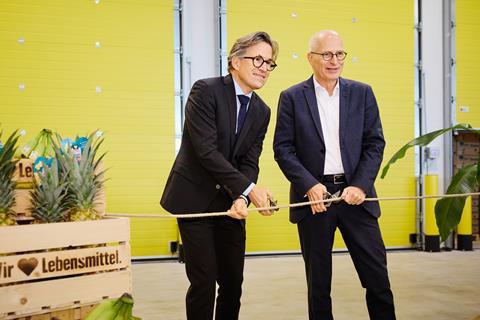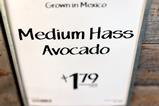Leading German grocery retailer has invested more than €60mn to build a brand new handling and ripening centre for imported fresh produce

Germany’s largest food retailer Edeka says its brand new distribution hub in central Hamburg will enable it to double the volume of fruit and vegetables it distributes via the city’s port.
The Fruchtkontor Nord facility, which is located in the city’s Kleinen Grasbrook quarter, will supply fresh fruit and vegetables to the company’s Edeka and Netto stores throughout the country.
The new site cost more than €60mn to build, and replaces a previous distribution centre that stood in the same part of Hamburg for several decades.
It covers around 37,000m2, and incorporates a 15,600m2 warehouse, 50 banana-ripening rooms, a packing zone and administrative area.
According to Edeka, the expansion makes it possible to double its annual turnover of goods, from around 120,000 pallets to more than 240,000 pallets.
This corresponds to 8,600 trucks of fruit and vegetables – mainly bananas, pineapples, grapes, citrus and exotic fruits – sourced from all over the world. It also expects the centre to ripen around 2.8mn boxes of ready-to-eat bananas and other tropical fruits such as mangoes and avocados each year.
“With the new Fruchtkontor in Grasbrook, the Edeka Group is investing in a modern import centre to supply 11,000 food markets across Germany with fresh fruit and vegetables every day,” said the city’s mayor Peter Tschentscher at the official opening.
The building boasts a solar energy system and is heated using the warmth created by its own refrigerators, which apparently enables it to operate without using any fossil fuels like natural gas.
Edeka CEO Markus Mosa said the new facility underlined the company’s commitment to a sustainable food supply. “We are not only significantly expanding our capacities, but at the same time setting the highest standards in terms of sustainability and energy efficiency,” he stated.
Edeka Fruchtkontor manages direct procurement of all the group’s fruit and vegetables through eight logistics platforms and offices in Germany, the Netherlands, Spain and Italy.








